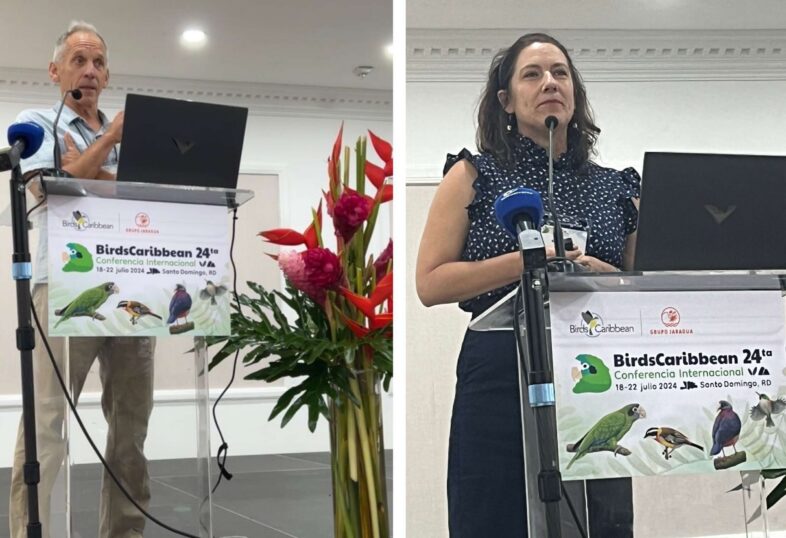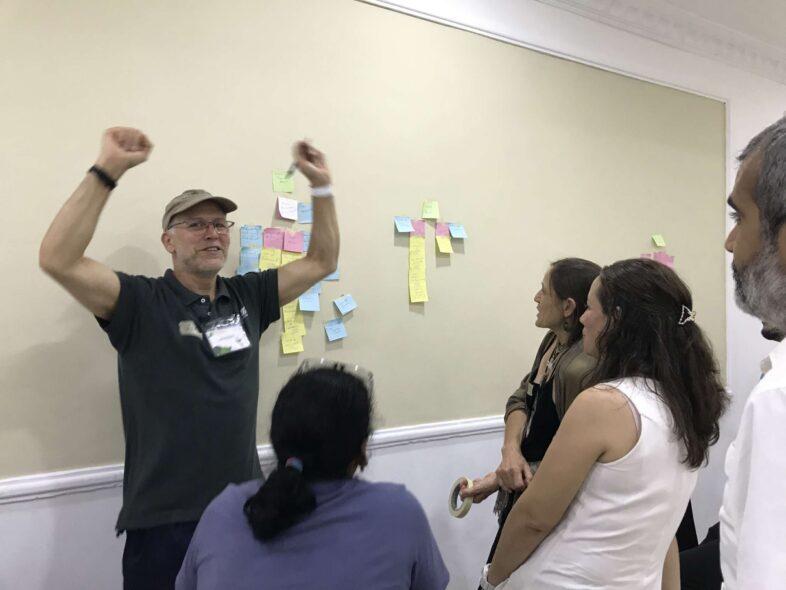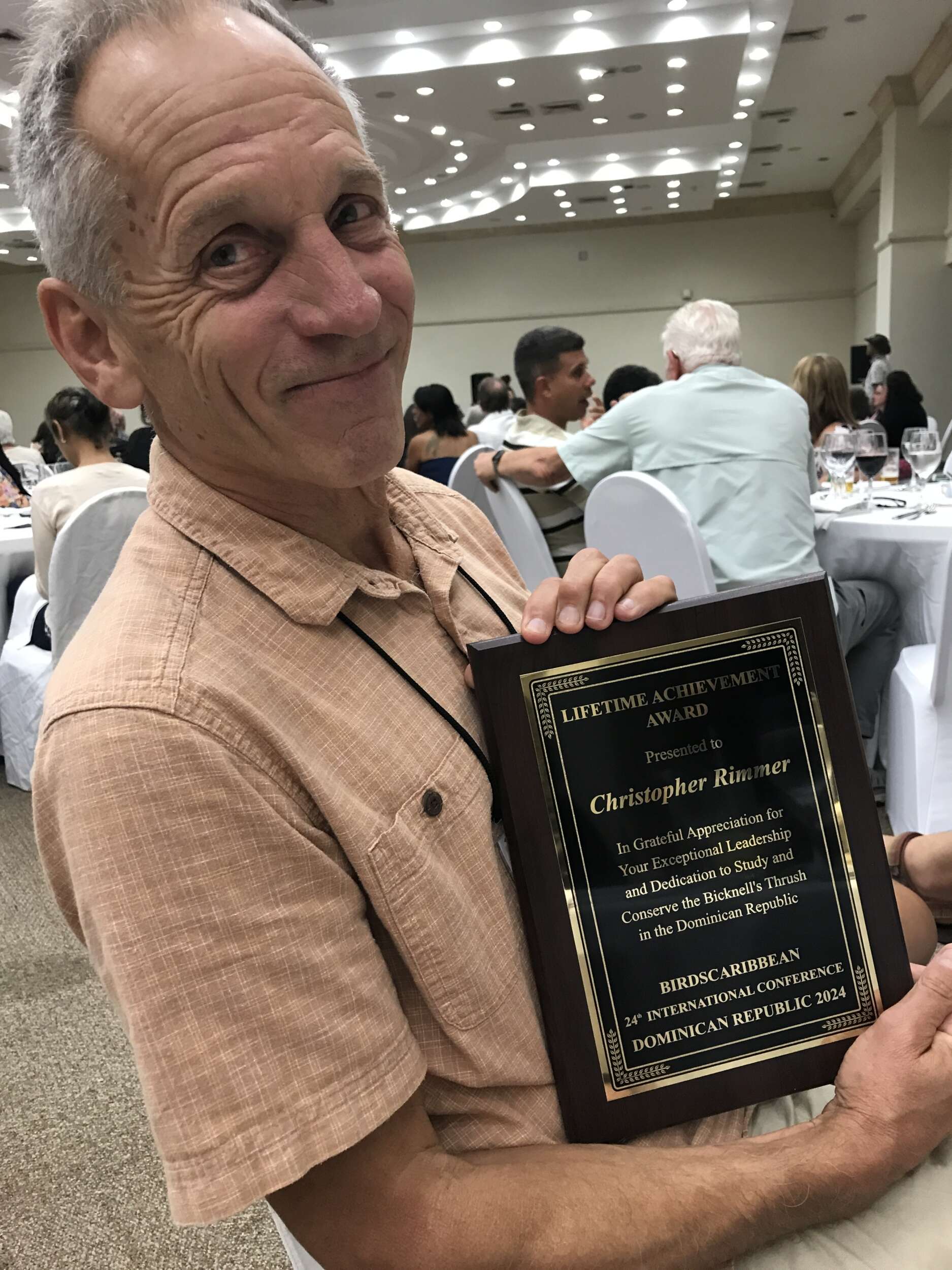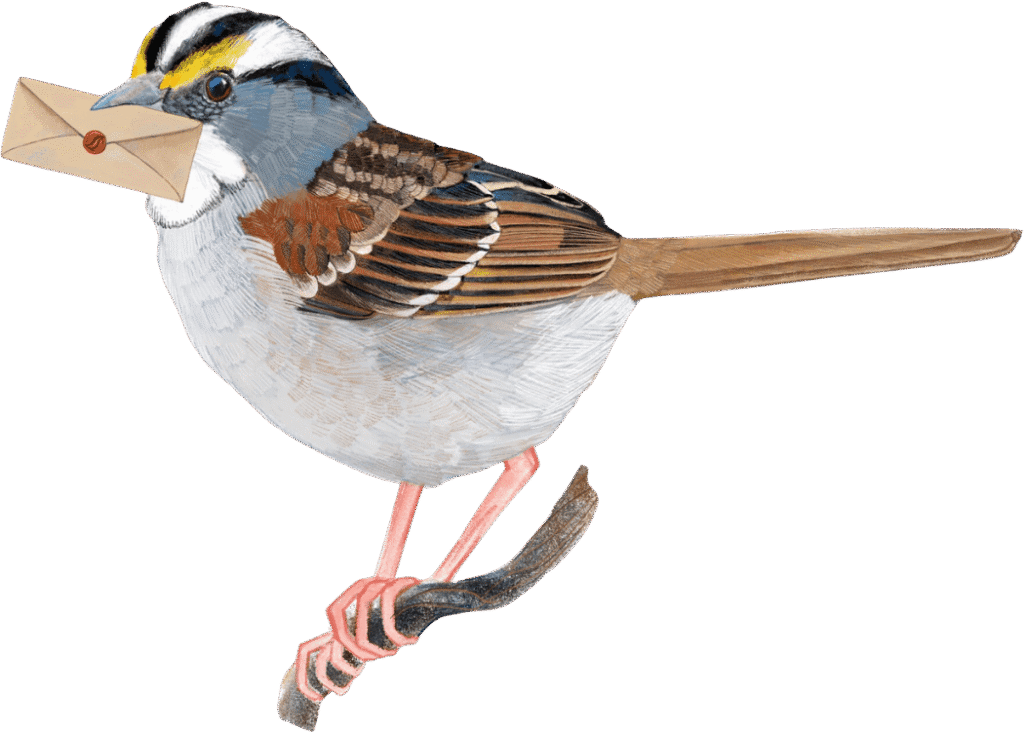24th BirdsCaribbean International Conference: Conversations and Celebrations

Left: VCE Executive Director Emeritus Chris Rimmer gives his keynote at the 24th BirdsCaribbean International conference. Right: Dr. Yolanda Leon, long-time VCE collaborator and Chair of Grupo Jaragua’s Board of Directors, gives her keynote at the conference. Photos provided for VCE use.
Last month, two VCE scientists and our Executive Director Emeritus spent over a week in the Dominican Republic for the 24th BirdsCaribbean International conference. While there, they packed their schedules, sharing ideas with colleagues, listening to fascinating discussions, leading workshops, and—in Chris Rimmer’s case—giving a keynote and receiving the Lifetime Achievement Award.
For those unfamiliar with BirdsCaribbean, they describe themselves as a “vibrant international network of members and partners committed to conserving Caribbean birds and their habitats in the insular Caribbean.” With over 170 endemic bird species in the Caribbean, the organization’s focus on fostering strong working relationships with like-minded conservation partners is key to combatting the numerous threats that face birds and other wildlife in this region. The international conference we attended provides an opportunity for scientists, educators, and professionals around the world to meet, exchange knowledge, and build community.
Throughout the conference, VCE’s delegation participated in the dialogue, leading several talks and workshops. Jim Goetz, our Caribbean Conservation Coordinator, led a dynamic workshop on improving adaptive management using the Conservation Standards framework. His hands-on, active-learning workshop gave participants tools and techniques to make their daily conservation work more coherent and strategic, as well as easier to communicate, implement, and monitor.

Jim Goetz brought his enthusiasm and knowledge to leading an engaging workshop on improving adaptive management using the Conservation Standards framework. © Michael Hallworth
Meanwhile, in a well-attended session entitled “Let’s talk MOTUS!,” Dr. Michael Hallworth, VCE’s conservation and data scientist, served as a panelist alongside other experts from BirdsCaribbean, American Bird Conservancy, University of Maryland Baltimore County, and Centro Oriental de Ecosistemas y Biodiversidad. The panel discussed the present and future of the MOTUS wildlife tracking system in the Caribbean. During the panel, Mike relayed how deploying Motus transmitters on Bicknell’s Thrush on the breeding and wintering grounds has already been a game-changer for expanding our understanding of the species’ migration pathways. He also detailed how new transmitter models are enabling VCE to unravel the mysteries of female Bicknell’s Thrush movement and survival throughout their entire annual cycle.

Chris Rimmer received BirdsCaribbean’s Lifetime Achievement Award in recognition of 30 years of dedicated study of Bicknell’s Thrush. © Michael Hallworth
Executive Director Emeritus Chris Rimmer was in the spotlight several times at the event. He delivered a keynote presentation detailing the discoveries that 30 years of research have revealed about Bicknell’s Thrush and the threats the species faces in the region. In honor of his three-decade dedication to studying these charismatic, elusive birds, Chris received BirdsCaribbean’s Lifetime Achievement Award. The organization presented the award in grateful appreciation for Chris’ “exceptional leadership and dedication to study and conserve the Bicknell’s Thrush in the Dominican Republic.”
Grupo Jaragua—a highly successful conservation organization based in the Dominican Republic and VCE’s main local partner in our ongoing Bicknell’s Thrush research—was the conference’s main organizer. The productive week-long event showcased Grupo Jaragua’s unwavering commitment and instrumental conservation work on Hispaniola. Grupo Jaragua joined two other local groups—Grupo Accion Ecologica and Fondo Peregrino República Dominicana—when it received BirdsCaribbean’s highest honors for its heroic efforts and successes in conserving endangered species and ecosystems.
Stay tuned for more updates on our caribbean conservation projects and collaborations coming later this autumn!

